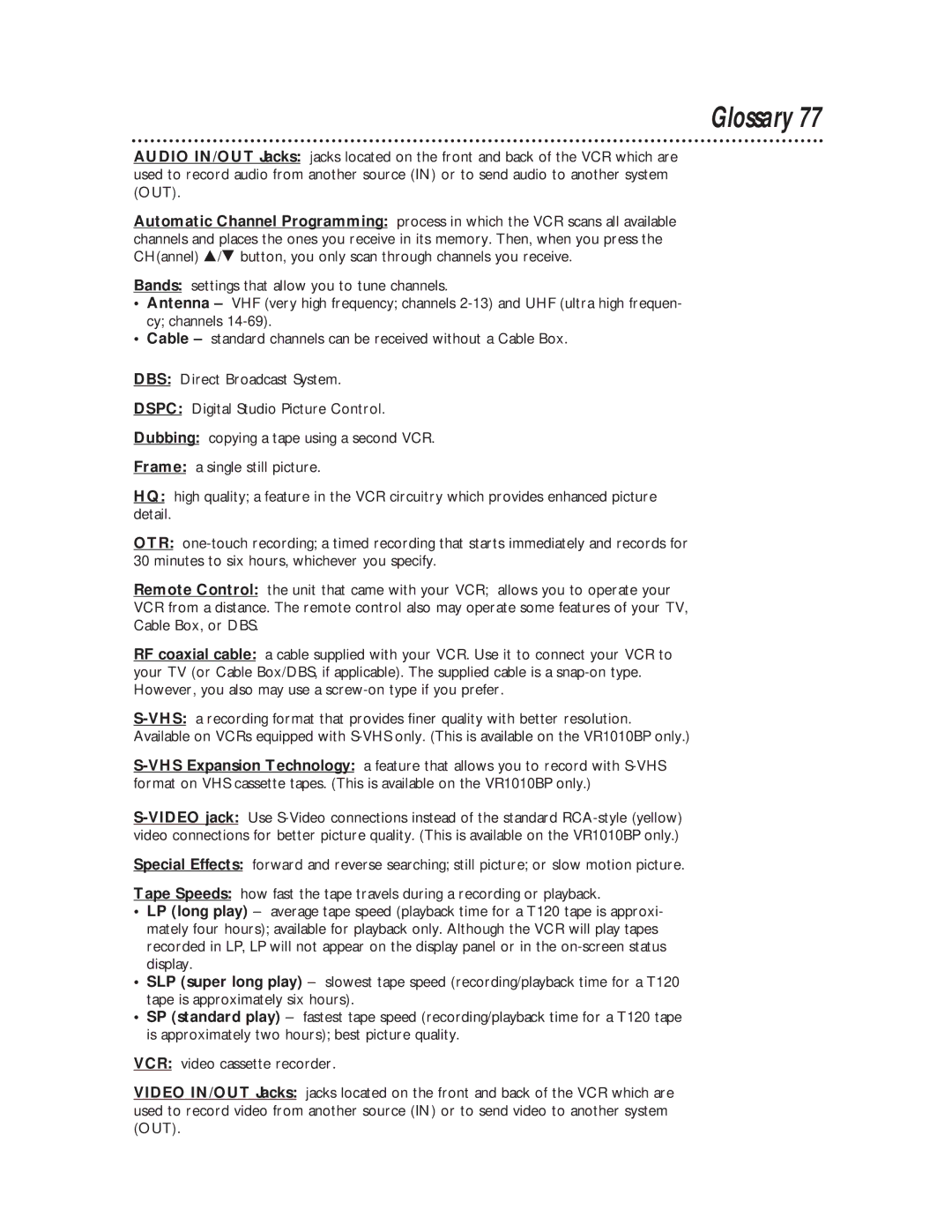Glossary 77
AUDIO IN/OUT Jacks: jacks located on the front and back of the VCR which are used to record audio from another source (IN) or to send audio to another system (OUT).
Automatic Channel Programming: process in which the VCR scans all available channels and places the ones you receive in its memory. Then, when you press the CH(annel) 8/9 button, you only scan through channels you receive.
Bands: settings that allow you to tune channels.
•Antenna – VHF (very high frequency; channels
•Cable – standard channels can be received without a Cable Box.
DBS: Direct Broadcast System.
DSPC: Digital Studio Picture Control.
Dubbing: copying a tape using a second VCR.
Frame: a single still picture.
HQ: high quality; a feature in the VCR circuitry which provides enhanced picture detail.
OTR:
Remote Control: the unit that came with your VCR; allows you to operate your VCR from a distance. The remote control also may operate some features of your TV, Cable Box, or DBS.
RF coaxial cable: a cable supplied with your VCR. Use it to connect your VCR to your TV (or Cable Box/DBS, if applicable). The supplied cable is a
Special Effects: forward and reverse searching; still picture; or slow motion picture.
Tape Speeds: how fast the tape travels during a recording or playback.
•LP (long play) – average tape speed (playback time for a T120 tape is approxi- mately four hours); available for playback only. Although the VCR will play tapes recorded in LP, LP will not appear on the display panel or in the
•SLP (super long play) – slowest tape speed (recording/playback time for a T120 tape is approximately six hours).
•SP (standard play) – fastest tape speed (recording/playback time for a T120 tape is approximately two hours); best picture quality.
VCR: video cassette recorder.
VIDEO IN/OUT Jacks: jacks located on the front and back of the VCR which are used to record video from another source (IN) or to send video to another system (OUT).
